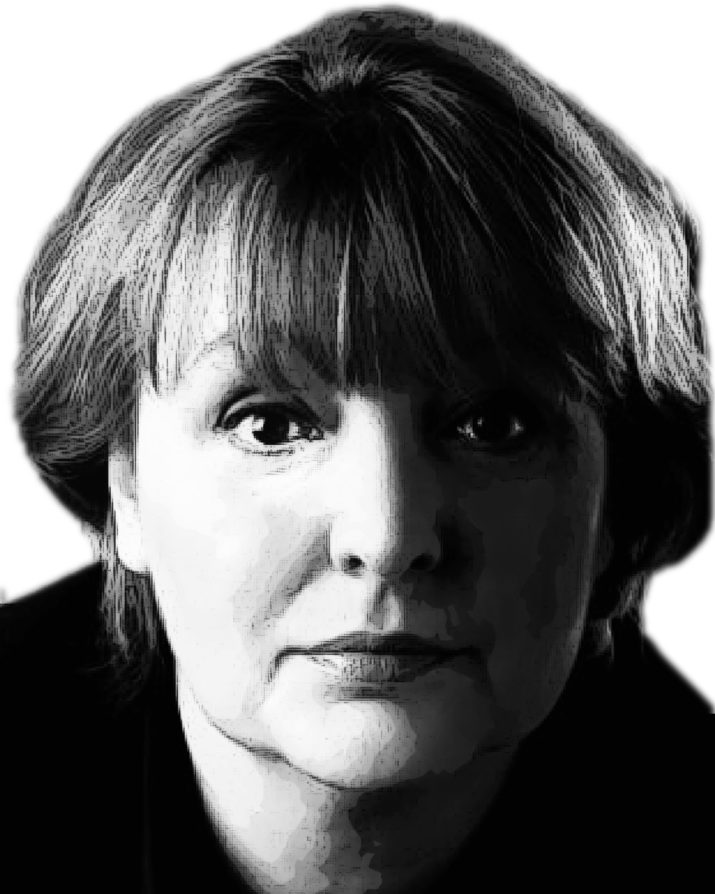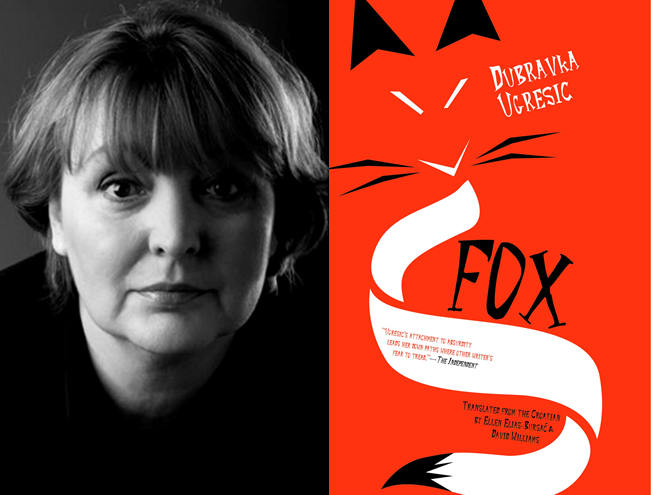

Translated from the B/C/S by Ellen Elias-Bursać and David Williams.
This is part of our special feature on Nationalism, Nativism, and the Revolt Against Globalization.
Marlene was Polish (in age she could have been my daughter) and she occasionally cleaned my apartment for ten Euros an hour. Who knows how she’d found her way to Amsterdam and from where, but in the flood of words she showered on me in her poor, strongly Polish accented English, I remembered mention of a collective somewhere in Belgium with its leader whom she referred to, reverently, as “Baba.” She still went there from time to time to lend a hand in the garden or the kitchen. My guess was that this was some sort of new-age commune for the treatment of drug addiction or something like that, where she met a fellow from Negotin . . .
“. . . where she met a fellow from Negotin. The boy had two brothers who were living in Amsterdam. Hardworking, capable fellows, they got here before the Poles, who are also hardworking, capable fellows. Marlene got to know all three brothers. She also knew their mother, who would visit the sons from time to time and stay for a month. The sons were good boys. Before going to sleep they’d read a page from the Bible, which their mother appreciated. One of the boys from Negotin spent all day painting apartments, and on Saturday and Sunday he’d dance the salsa. He even took a salsa class. He enrolled in a school for shiatsu massage. Marlene’s Negotin boyfriend repaired bicycles. The third brother, who did nothing but smoke hashish all day long, had recently returned to his mother in Negotin. So Marlene learned Serbian instead of Dutch. Though I never met the young man, I have to say he couldn’t be worth even as much as her little finger. Because Marlene was tall and slender as a birch tree, with a transparent, milkwhite complexion and light blue eyes, a true northern beauty. Only her hands are large, red, and chapped, as if somebody had attached them to Marlene’s fragile arms by some terrible mistake. Marlene works as a maid in a cheap Amsterdam hotel on the sly. Working as a maid in a cheap hotel means spending half the day with your nose buried in people’s shit. And the boss is a nasty woman, to all of them—to Marlene, a Bulgarian woman, a Croatian woman, and a Serbian woman—she treats them all like slaves. Sometimes Marlene cleans houses as well, and in her spare time she makes cute little bags that can be worn around the neck. Marlene looks after her family, her grandfather (she has a special fondness for her grandfather), and for her newfound family. She identifies with the stories about Negotin though she has never been there. When one of the brothers gets sick, she cooks healing chicken soup for them. Marlene also looks after her own little ‘Dutch’ family: a turtle, a rabbit, and a cat who live with her in her miniature Amsterdam apartment. The rabbit and cat can hardly wait for her to come home, and they are happiest when she lets them sleep with her.
“But Marlene is not entirely without dreams of her own. You can see by the gleam in her eyes that she is no ordinary young woman. Something is cooking in Marlene, though for now she has no idea where to take herself, to the left or the right . . .
One day Marlene told me . . . ‘I’ve decided to move up . . .’
‘Up? What do you mean, move up, Marlene?’
“She had met some people by chance who ran a puppet street theater, and the actors needed somebody to stand on stilts, and Marlene, thinking of her grandfather—who had delighted her by walking around on stilts—said, “I will!” And what do you know, she stood on stilts. At first she wobbled dangerously, of course, but now she struts around with the ease of a fish in water. Marlene wears a giraffe costume. Her head is in the clouds and somewhere way down below are the nasty hotel manager jostling with her friends from Negotin; her rabbit, cat, and turtle; her family in Poland; her mother; her grandfather . . . She uses the money she makes on the stilts to buy everybody a little something: a terrarium for the turtle, a carrot for the rabbit, a ball for the cat, a scarf for her boyfriend from Negotin, a little basket woven of matchsticks for me . . . It isn’t the money that matters, it is how Marlene feels. Up there, her head in the clouds, her eyes two and a half meters or more above ground, Marlene feels like somebody who has finally reached the height she deserves. Some Dutch people feel that Marlene’s integration into Dutch society has been a success. The only thing they hold against her as a giraffe is that she hasn’t yet learned to speak—Dutch.”
I wrote that fragment about Marlene and worked it into an essay about recent European migrations. I’d published the piece some time ago and forgotten about it, and Marlene lost touch with me. I don’t believe she’d ever come across the passage I wrote about her, because I don’t remember her ever expressing an interest in any sort of writing. I ran into her boyfriend from Negotin after Marlene had gone from my life. I happened to wander into a shop with used bicycles: the Negotin fellow had short legs, he slurred his words, and avoided eye contact, a cagey guy, all in all. I was right: he wasn’t worth even Marlene’s little finger.
After an exploratory phone call, Marlene showed up some seven or eight years later at my apartment, pale, her disheveled hair sweetly tamed with children’s barrettes, slender as a birch, with thin-framed glasses perched on her nose that only served to accentuate her air of fragility. Her English seemed even more speedy and garbled and her Polish accent even harder. Oh, yes, she’d broken things off with the Negotin fellow ages back, she had a new boyfriend now, a Pole, she was no longer cleaning houses, nor did she work in the horrible hotel, her hands showed it, the red chafing was gone, she was busy with, ha-ha, “creative work.” Ever since she’d left the Negotin fellow she had been sharing an apartment with a friend, her friend had a child, a seven-year-old girl, and a former husband who stopped by now and then, the ex-husband was a shaman, yes, why was I surprised, no, he wasn’t from Negotin but he was from that part of the world, clearly she was destined to be around people from there, whether they were bicycle repairmen, or shamans, or their wives . . . And I could see the picture of her new boyfriend on her smart phone, a nice, sharp picture, and this is her grandfather, over ninety and still sprightly, and these are pictures of the little rice-paper shades she made, and colorful bedspreads . . . No, she hadn’t made the bedspreads herself, they were the work of her new boyfriend’s mother in Poland, maybe her future mother-in-law, a hundred euros a piece, if I liked she could get me one, or two, or how ever many I wanted, and these are pictures of clown shoes, she made a pair, and a little trunk, she made them all for the theater . . . Yes, she was still working with the giraffes, she traveled with them, though she’d been thinking she might split off and form her own street theater, for the moment she was holding workshops, teaching others how to walk on stilts, there were people interested, especially in Poland, because there were no jobs there and young people were casting about for ways to survive . . . True, she’d held only two workshops so far, she told the students it isn’t so much a balancing act as it’s about the movements, you have to have a knack for stilts, people often think it’s enough to take those first steps, but what matters is full-body expression, that’s what she called it, full-body expression, that was the hitch, to know how to act with your body, because your face is hidden, after all, by a mask . . . She had, meanwhile, made her peace with the idea that she’d remain a giraffe as long as she was working at the theater, because nobody would allow her to be anything else, oh, yes, she could have been a zebra had she wanted to, but what difference would that make, which is why she decided she’d break away as soon as possible and open her own school in Poland, no, she wouldn’t do it here, her boyfriend was holding English lessons, that was how he supported himself, the people who were tutored by him cared nothing about his qualifications, true, they were older people, lonely souls, anxious about signing up for proper language classes, but they’d be glad learn a little English . . . the times are new, the internet age is here, an interested party can be found for every service offered, and, by the way, I, too, might give it a look, age plays no role at all . . .
I don’t know why—perhaps because of Marlene’s smoke screens with which she obscured her genuine state of affairs—stirred in me, instead of pity, rage. Rage is another form of sympathy. Perhaps it was her school for walking on stilts that sent my blood pressure shooting up, maybe it was because of her repeated use of the word “career,” yet she had barely completed elementary school, and maybe it was because of her advice that, by the way, I, too, might give it a look (that an interested party can be found for every service offered), age plays no role at all . . . All in all, I said something, lashed out with harsh words at Marlene’s invisible stilts, I don’t even remember what, the tone mattered more than the words, a tone Marlene understood, my tone sent her swaying like a crystal goblet, she looked as if she might shatter but she didn’t make a sound or cry, instead she spat out something like I do what I know the best I can, and then she got up and left. We promised each other, of course, that we’d be sure to see each other more often now, but I knew she’d not come by any more and she wouldn’t call, she’d never forgive me for lashing, out of the blue, at the image she’d so carefully fashioned for herself.
After Marlene left I sat down in front of my computer and searched on the internet for her street theater with its permanent address in Amsterdam, and on their site I finally watched a video clip with the giraffes. There were a lot of them, a whole family, big ones, little ones . . . A herd of giraffes ambled through an Amsterdam park, and to them flocked the delighted audience. The people stroked the giraffes on the muzzles as if the puppets were real animals, as if the public didn’t know or successfully pretended not to know, that these were only big puppets being maneuvered by stilts-walkers. Here, too, Marlene was right, with her stammering effort to articulate full-body expression, indeed, what mattered was not authenticity but the art of illusion. The giraffes bent their necks gracefully and, stretching out their sweet muzzles, big eyes, and long lashes, they did some sort of not very nimble dance but the clumsiness was fetching, they rubbed their necks together, the little giraffes nudged their way under the legs of the big ones . . . Among them was Marlene, but I couldn’t tell in which giraffe beat Marlene’s heart.
Marlene had asked nothing of me, I could so easily have said a few words about how marvelous it was that she was doing this, how she’d made a go of it when so many others were floundering, how resourceful she was in these times of hardship when many people were finding it so difficult to get a job, and how she’d chosen an admirable, old-time skill . . . I said none of these things; only somebody who is better, or at least feels themselves to be superior to the person they’re talking with, can say such generous things, and I was blindsided by the realization that I, myself, am a “stilts-walker,” but less skilled and far older than Marlene, and hey, I, too, do what I know the best I can. Of course under the cheap truth peeked an even cheaper one: Marlene had showed up at my door not because she was particularly keen to see me, but to check on whether I needed somebody to clean my apartment as she had done before and could she pick up a little extra cash, just as my sudden outburst of anger at Marlene was provoked by the fact that I did, indeed, need somebody to clean my apartment, but I no longer had the wherewithal to pay for it.
Dubravka Ugrešić is the author of seven works of fiction, including The Museum of Unconditional Surrender and Baba Yaga Laid an Egg, along with six collections of essays, including Thank You for Not Readingand Karaoke Culture, a finalist for the National Book Critics Circle Award for Nonfiction. She has won, or been shorlisted for, more than a dozen prizes, including the NIN Award, Austrian State Prize for European Literature, Heinrich Mann Prize, Independent Foreign Fiction Prize, Man Booker International Prize, and the James Tiptoe Jr. Award. In 2016, she received the Neustadt International Prize for Literature (the “American Nobel”) for her body of work.
Ellen Elias-Bursać has been translating fiction and nonfiction by Bosnian, Croatian, and Serbian writers since the 1980s, including novels and short stories by David Albahari, Dubravka Ugresic, Daša Drndić, and Karim Zaimovič. She is co-author of a textbook for the study of Bosnian, Croatian, and Serbian with Ronelle Alexander and author of Translating Evidence and Interpreting Testimony at a War Crimes Tribunal: Working in a Tug-of-War, which was awarded the Mary Zirin Prize in 2015.
David Williams is the author of Writing Postcommunism, and translated Ugresic’s Europe in Sepia and Karaoke Culture.
This excerpt from Fox is published by permission of Open Letter Books. Copyright © 2018 by Dubravka Ugrešić. Translation copyright © 2018 by Ellen Elias-Bursa and David Williams.
Published on February 1, 2018.




